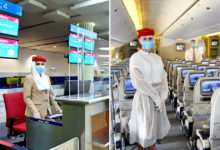$2m HIV test kits now set to rot away
ABOUT 10,000 Capillus HIV rapid test kits worth $2m (aprox. 2.6bn/-) are reported to have been dumped at the Medical Stores Department (MSD) in Dar es Salaam and are now in serious danger of decomposing and causing a huge waste of state funds.
THISDAY REPORTER
Dar es Salaam
ABOUT 10,000 Capillus HIV rapid test kits worth $2m (aprox. 2.6bn/-) are reported to have been dumped at the Medical Stores Department (MSD) in Dar es Salaam and are now in serious danger of decomposing and causing a huge waste of state funds.
Health experts assert the MSD does not have enough cold room space to store the Irish-made kits, which can only survive if kept at temperatures of between 2-8 degrees centigrade.
According to MSD sources, the situation is a result of what they describe as a deliberate campaign by senior officials in the Ministry of Health and Social Welfare, to mislead the United States Agency for International Development (USAID) into agreeing to the purchase of the wrong brand of test kits for local use.
The deal is said to have been carried out through Dar es Salaam businessman Bharat Rajan, owner of the Biocare Health Products Company Limited which is sole agent of Trinity Biotech Limited, main suppliers of the Irish-made Capillus kits.
However, it is now understood that the ministry’s earlier plan was to purchase SD Bioline test kits from South Korean company Standard Diagnostic Inc. And with this in mind, medical personnel in various public health facilities have since last year been undergoing training on how to use the SD Bioline kits.
The decision to scrap the SD Bioline contract and instead buy Capillus kits has thus resulted in a state of confusion now threatening to engulf the ministry and the country�s health sector as a whole.
With the money used to purchase the Capillus kits having been donated by USAID, THISDAY earlier this week submitted a set of questions on the simmering subject to the US Embassy in Dar es Salaam. But the questions had gone unanswered by yesterday evening.
Sources say senior officials from the ministry interfered with the Medical Stores Department (MSD)’s authority in advising USAID to go ahead and buy large quantities of Capillus kits, whose local use has now been effectively discontinued.
MSD is the state agency mandated to oversee procurement of HIV drugs and equipment into the country.
”The dilemma we are facing is that now there are so many Capillus kits here, which strictly speaking are not likely to go away soon. And we have no room to store all them,” a source at MSD said.
It is further stated that when MSD tried to buy the SD Bioline test kits last year as initially agreed, the ministry went ahead and floated its own tender for Capillus kits, resulting in the Public Procurement Regulatory Authority (PPRA) intervening to stop both tenders and launch an investigation.
”There was a serious shortage of HIV test kits, and these ministry officials used the loophole,” a source said.
The PPRA investigation has yet to yield results.
In a statement last November, the ministry’s permanent secretary Ms Hilda Gondwe acknowledged that the Capillus test kit was not sufficiently effective in the kind of warm weather conditions found in the country.
”The system of using Capillus test kits has, of late, proved a problem for us in some parts of the country, as they require cold storage. This hinders efforts to rapidly scale up HIV/AIDS care and treatment services in the country, especially the provision of antiretroviral drugs in rural settings,” Ms Gondwe said.
Capillus was disqualified from Phase II evaluation as required by regulations of the Private Laboratories Registration Board (PLRB), after failing during phase I of the process of finding suitable test kits to be included in the national algorithm.
Sources say Capillus was disqualified because it needs a cold chain of between 2-8 degrees centigrade to function properly, something which is not attainable in rural Tanzania where power supply and refrigeration are not available.
The ministry has since announced a new national algorithm to include only two types of HIV test kits: Determine, manufactured by the US-based Abbot Laboratories, and South Korea’s SD Bioline.
Source: This Day





